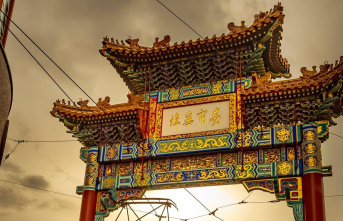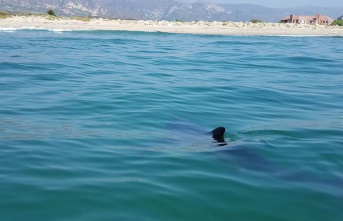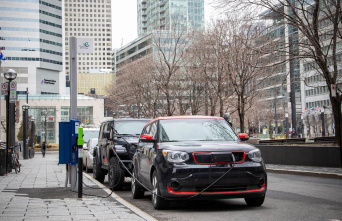One person was killed and 12 injured late Thursday in Karachi, Pakistan's most populous city, in a bomb attack claimed by a local separatist group, a police source said.
The attack, which took place around 11 p.m. (6 p.m. GMT) in the Saddar district, was claimed by the Sindhudesh Revolutionary Army (SRA), which is fighting for the independence of the southern province of Sindh. , of which Karachi is the capital.
In a statement posted on its Telegram channel, the SRA said it had detonated a "remotely controlled bomb" which targeted a coastguard vehicle, and pledged "to continue its resistance until the full release" of the Sindh.
“Several” vehicles, including one belonging to the coastguard, were damaged in the explosion, which caused the death of a “passerby”, said Sajjad Khan, a local police official.
“According to the first elements of the investigation, the bomb had been placed on a motorcycle parked next to a garbage can,” he explained.
Victims were still being treated Friday morning at Jinnah Hospital for injuries caused by steel balls placed with the explosive to amplify the damage, said an official of the establishment, Shahid Rasool.
Nine of the injured were still hospitalized and three were allowed to go home, according to this source.
The attack comes more than two weeks after a suicide bombing by a female suicide bomber killed four people, including three Chinese teachers working for the Confucius Cultural Institute on the University of Karachi campus.
The Balochistan Liberation Army (BLA), a group fighting for the independence of this province, the largest and poorest in Pakistan, and which has often targeted Chinese interests in the country in the past, had claims.
Pakistan has been facing deteriorating security in recent months, especially since the Taliban took power in Afghanistan in mid-August.
After several years of relative calm, the attacks have resumed with renewed vigor, carried out by the Pakistani Taliban of the Tehreek-e-Taliban Pakistan (TTP), the regional branch of the Islamic State group (EI-K), or separatist groups Baluchis.
Pakistan accuses the Taliban of letting these groups use Afghan soil to plan their attacks, which Kabul has repeatedly denied.
This trend has been confirmed in recent weeks, with the number of attacks increasing by 24% between March and April, according to the PICSS Institute in Islamabad.
1












